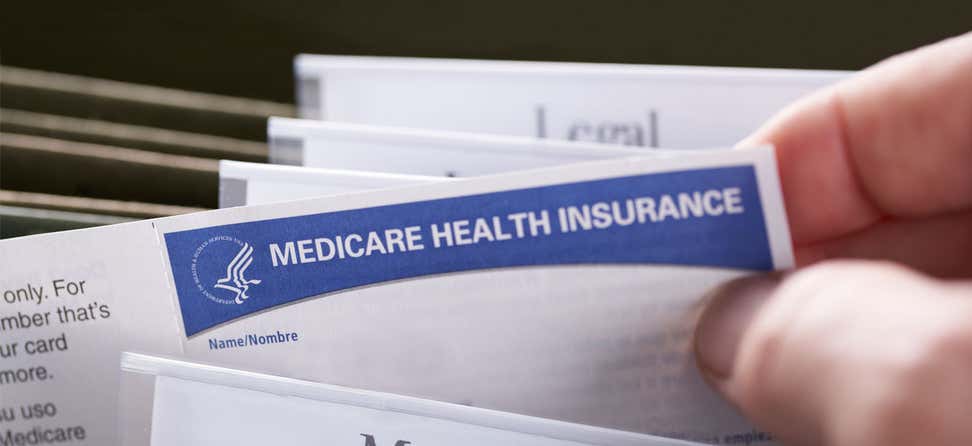Key Takeaways
Learn how to develop and operate a cost-effective, accredited DSMT program that meets CMS guidelines for Medicare Reimbursement.
The primary audience for this tip sheet is Area Agencies on Aging, community planners, and healthcare professionals.
Area Agencies on Aging or other community- based organizations can play an integral role in expanding the use of Medicare’s Diabetes Self- Management Training (DSMT) benefit among underserved older adults with a diagnosis of diabetes by seeking accreditation for their diabetes education and support program using the Self-Management Resource Center’s (SMRC) Diabetes Self-Management Program (DSMP) as the core curriculum of an expanded program that meets the ten National Standards. According to the Centers for Medicare & Medicaid Services CMS data for 2011, 28% of Medicare beneficiaries have a diagnosis of diabetes, yet the American Association of Diabetes Educators (AADE), now the Association of Diabetes Care & Education Specialists (ADCES), estimates that only 1.5% of eligible Medicare beneficiaries have used their DSMT benefit.
Resources
- Information Resource: Diabetes Self-Management Training
- CDC Diabetes Self-Management Education and Support (DSMES) Toolkit
What Do I Need to Get Started?
- Establish a partnership with a Medicare provider or obtain or have an existing Medicare provider number to bill Medicare for DSMT. An entity cannot become an approved Medicare provider if they only provide DSMT. The provider must have a primary service, other than DSMT, in order to be a Medicare provider. However, DSMT can be the secondary service to Medical Nutrition Therapy (MNT), see more information in the MNT Tip Sheet. Additionally, the resource guide from n4a’s Aging and Disability Business Institute explores what community-based organizations need to know about become a Medicare Fee-For-Service Provider.
- CMS provides reimbursement for up to 10 hours of DSMT provided to an eligible beneficiary. When combined with MNT (a 3-hour benefit), the reimbursement stream can be sustainable.
- Apply to the American Diabetes Association (ADA) or ADCES for accreditation of your program. CMS only pays claims for accredited DSMES/DSMT programs.
- A complete needs assessment is necessary prior to making the initial financial and organizational commitment to start a new DSMES program, see page 13 of the DSMT Information Resource.
- Understand that community-based DSMES programs can co-exist with institutional- based programs. A community-based program can serve as a resource for consumers who are not able or willing to attend an institutional-based program.
- Determine your true cost of delivering the program; without this knowledge, you are negotiating blind. A detailed understanding of expenses and revenues is necessary; in order to know the program’s projected level of surplus, see information on a break-even analysis starting on page 25 of the DSMT Information Resource.
- Establish an agreement between you and your Medicare provider partner (if applicable) before claims are submitted to Medicare that defines the responsibilities of each organization and how the funds will be handled.
- Understand that the Self-Management Resource Center Diabetes Self-Management Program does not have all the elements required to meet the National Standards for accreditation. It can be used as an approved curriculum in an accredited DSMES program as long as it is part of an expanded program that meets the ten National Standards.
- Know your target audience; beneficiaries must have a diagnosis of diabetes and be enrolled in Medicare Part B to be eligible for DSMT. For beneficiaries with a diabetes diagnosis who have Part C, the Medicare provider must establish an agreement with the applicable Advantage Plan administrator.
- Know that a provider cannot use incentives to encourage Medicare beneficiaries to use the service (e.g., take the class). However, diabetes education materials (such as a self-management book or other course book) are an essential part of the curriculum and are NOT viewed as incentives for the consumer to attend DSMES services.
Why Health Care Providers are interested in this Benefit
- Many national insurers have a core mission to improve health outcomes through health promotion and education efforts including Medicare Advantage Plans, Medicaid Managed Care Plans, and traditional health insurance plans.
- All insurance plans, including Medicare Advantage plans, are graded according to Healthcare Effectiveness Data and Information Set measures, which are heavily weighted towards diabetes outcomes.
- Patient-Centered Medical Homes and Accountable Care Organizations (ACOs) have a focus on lowering costs for persons with chronic disease.
- Many payers, including Medicare, are moving towards a system of paying for outcomes. This is also known as pay for performance. Diabetes self-management is an essential component to improving health outcomes for consumers with a diagnosis of diabetes.
Relevant Webinars










